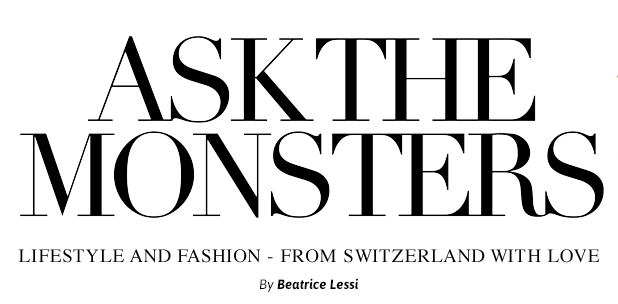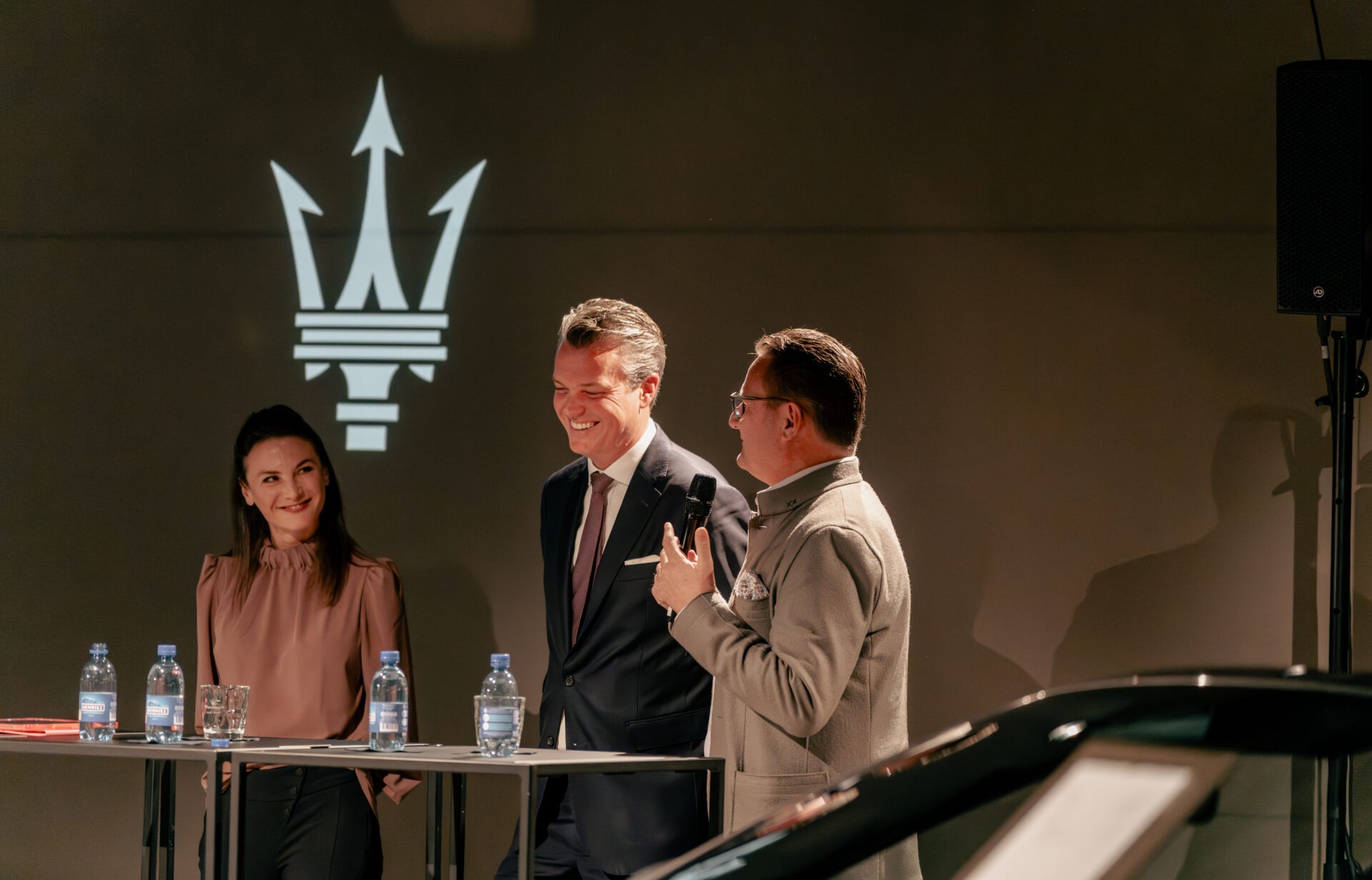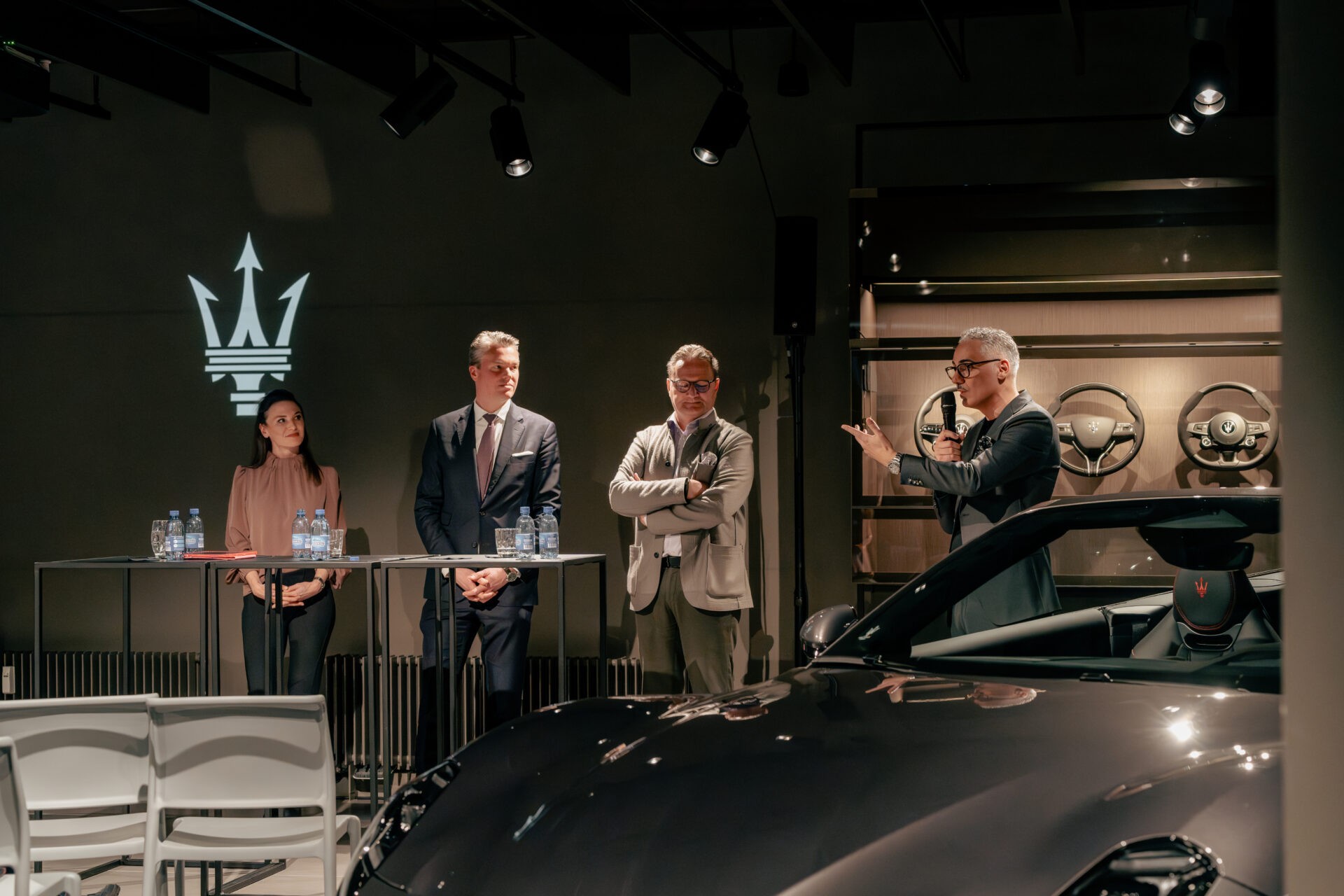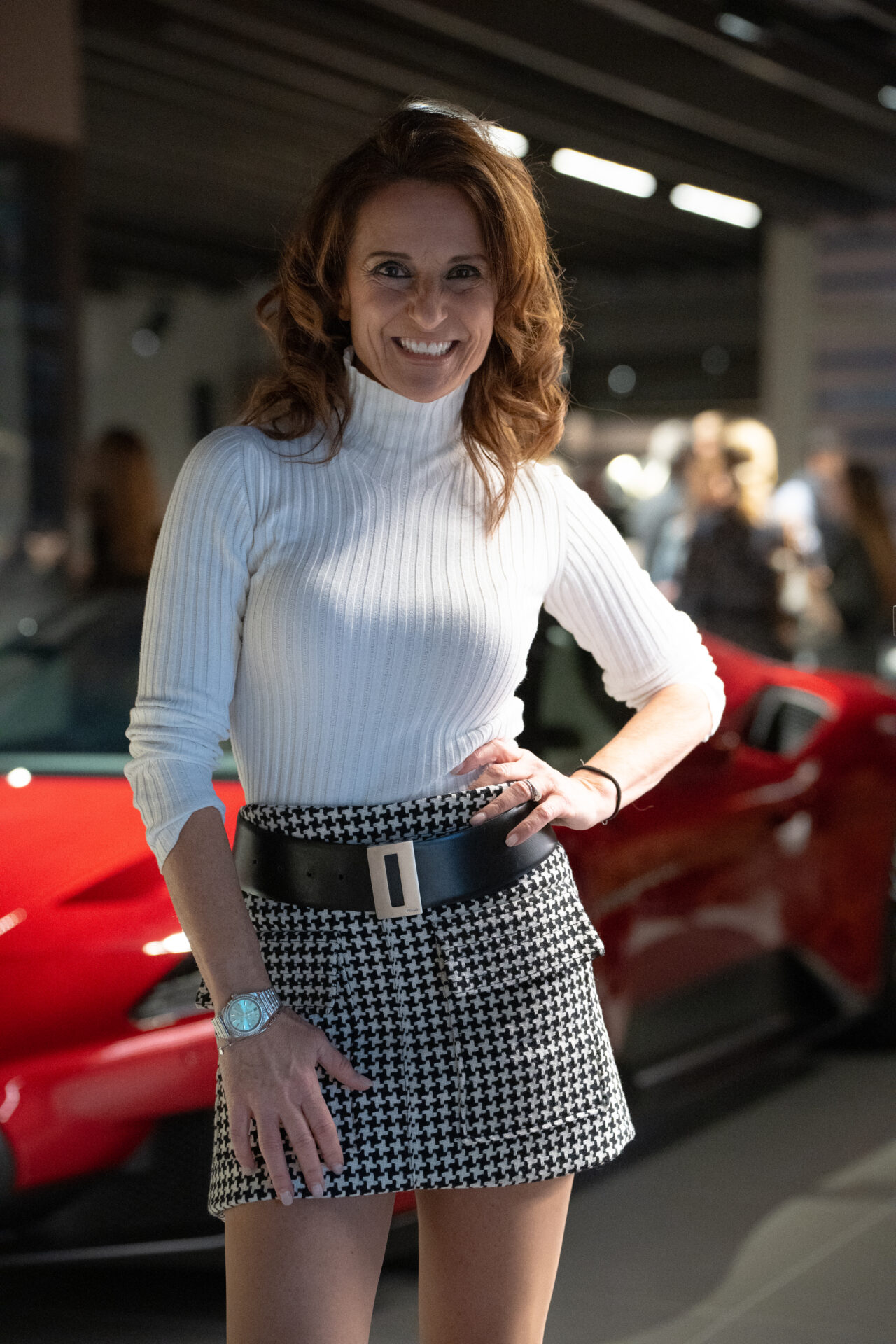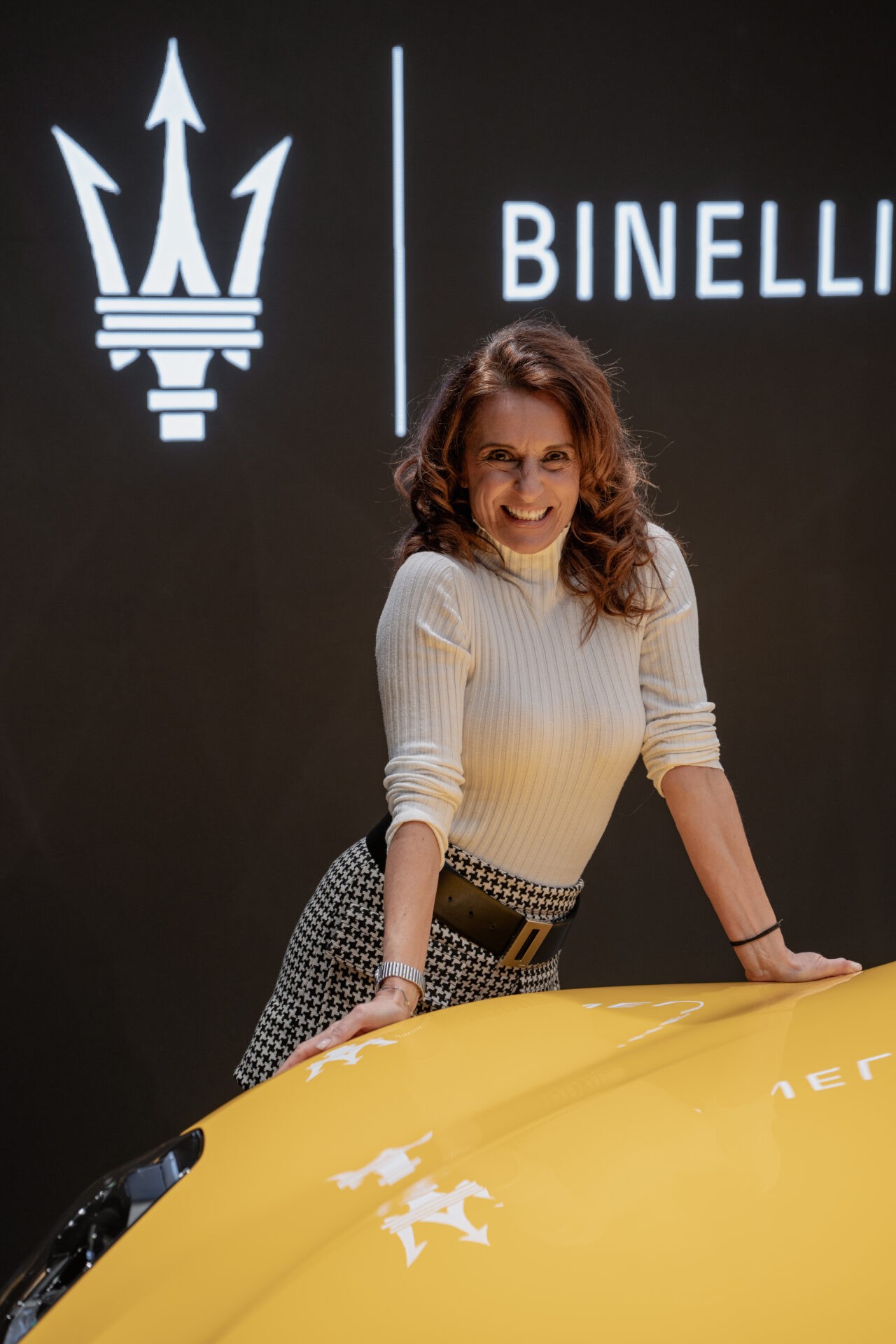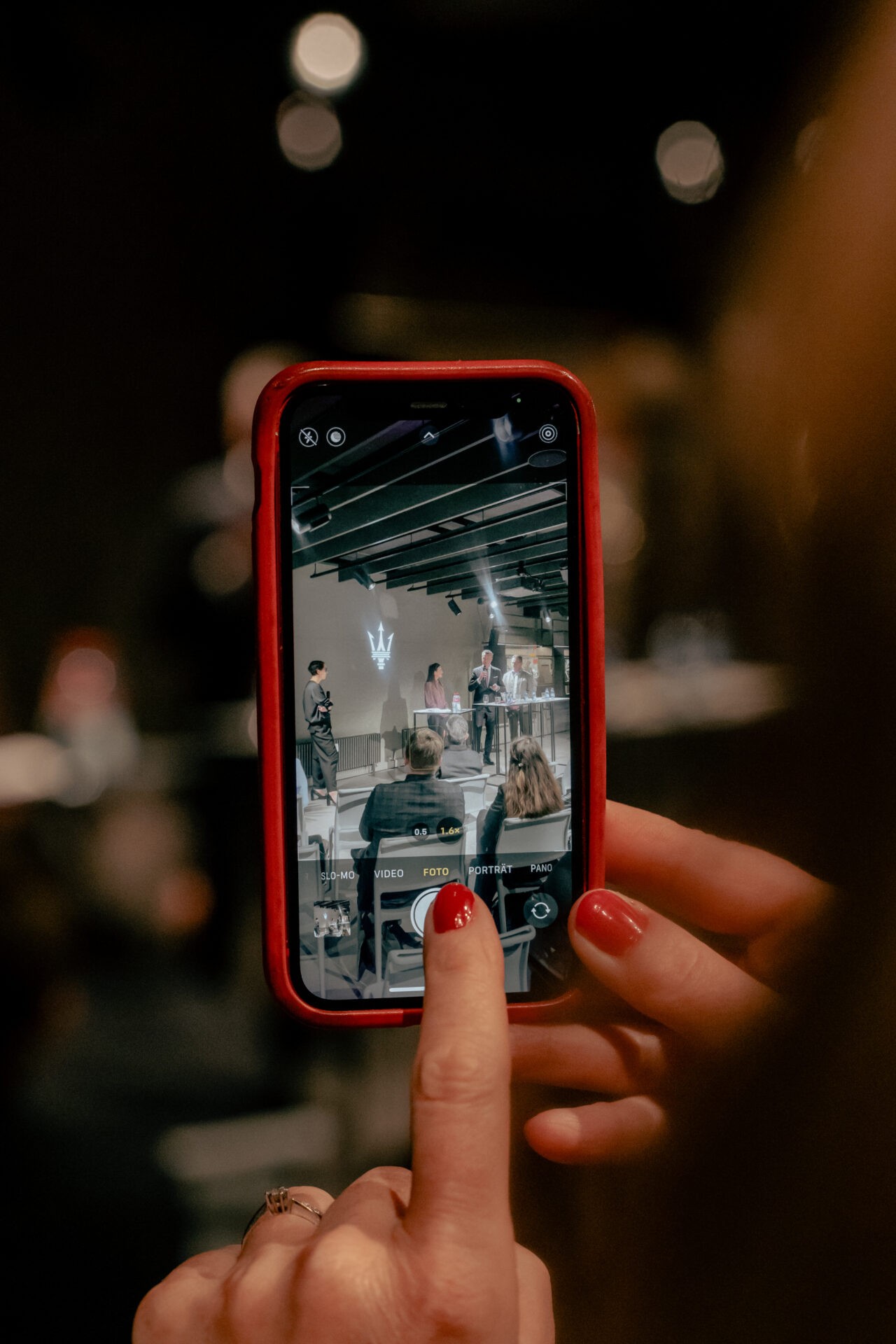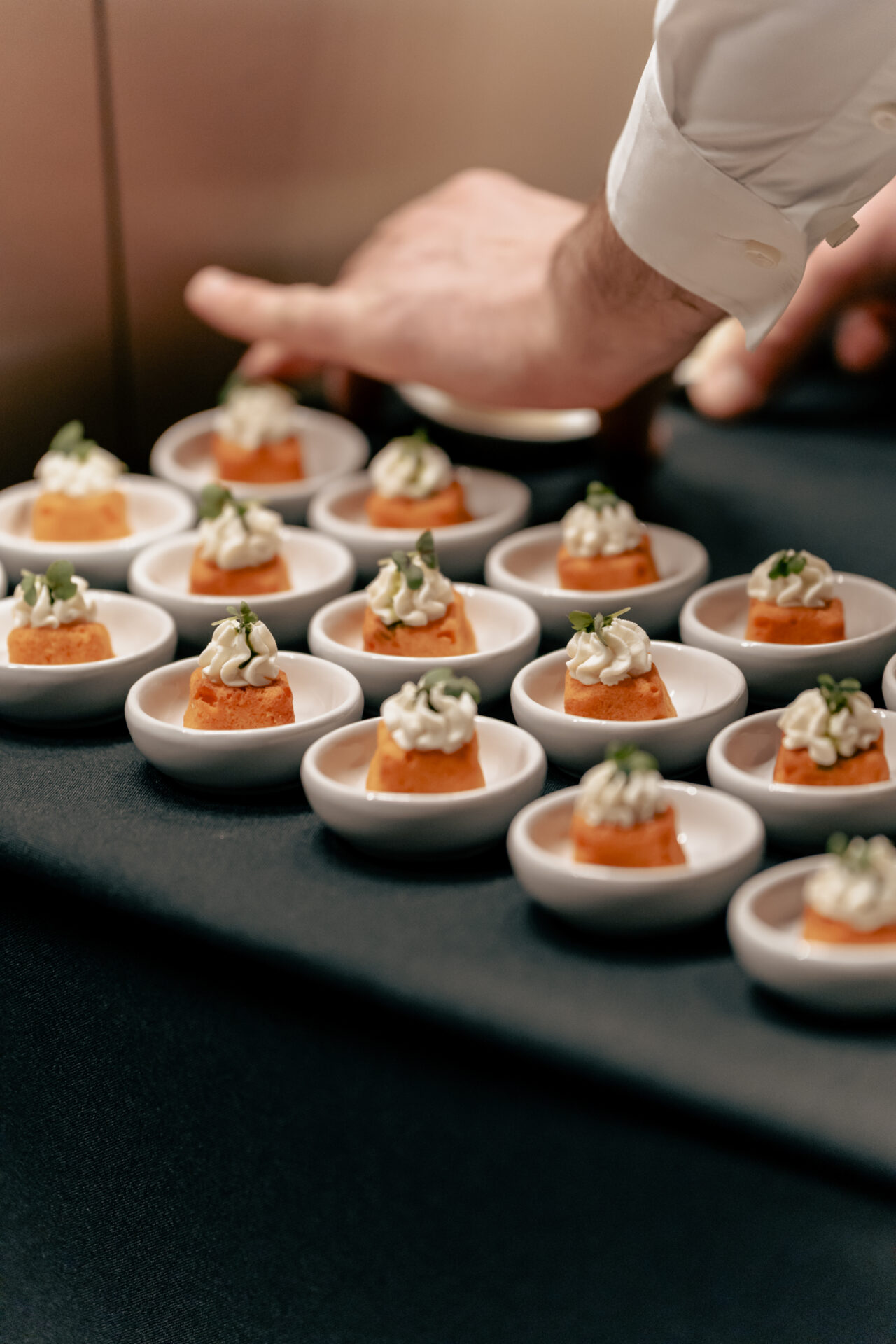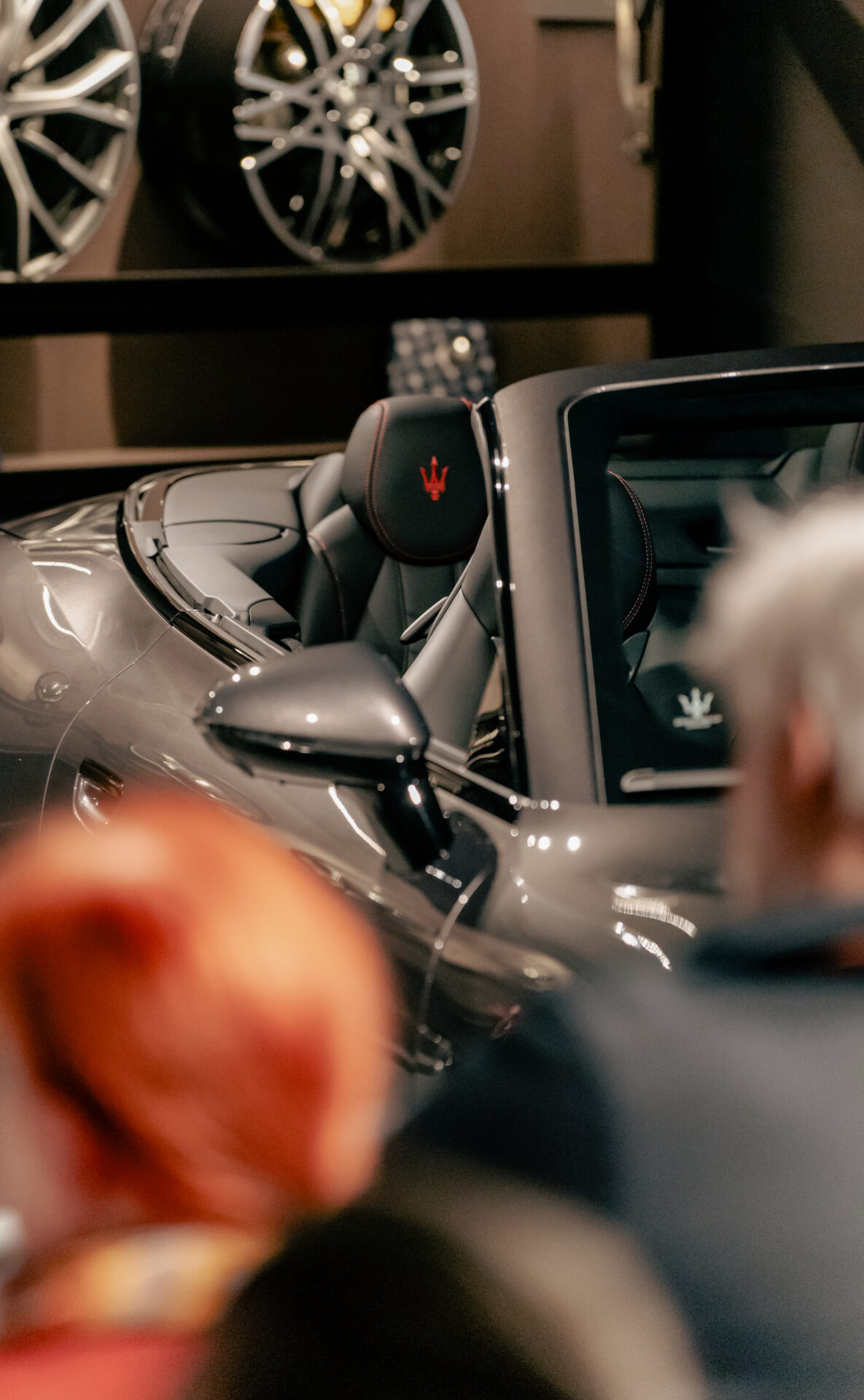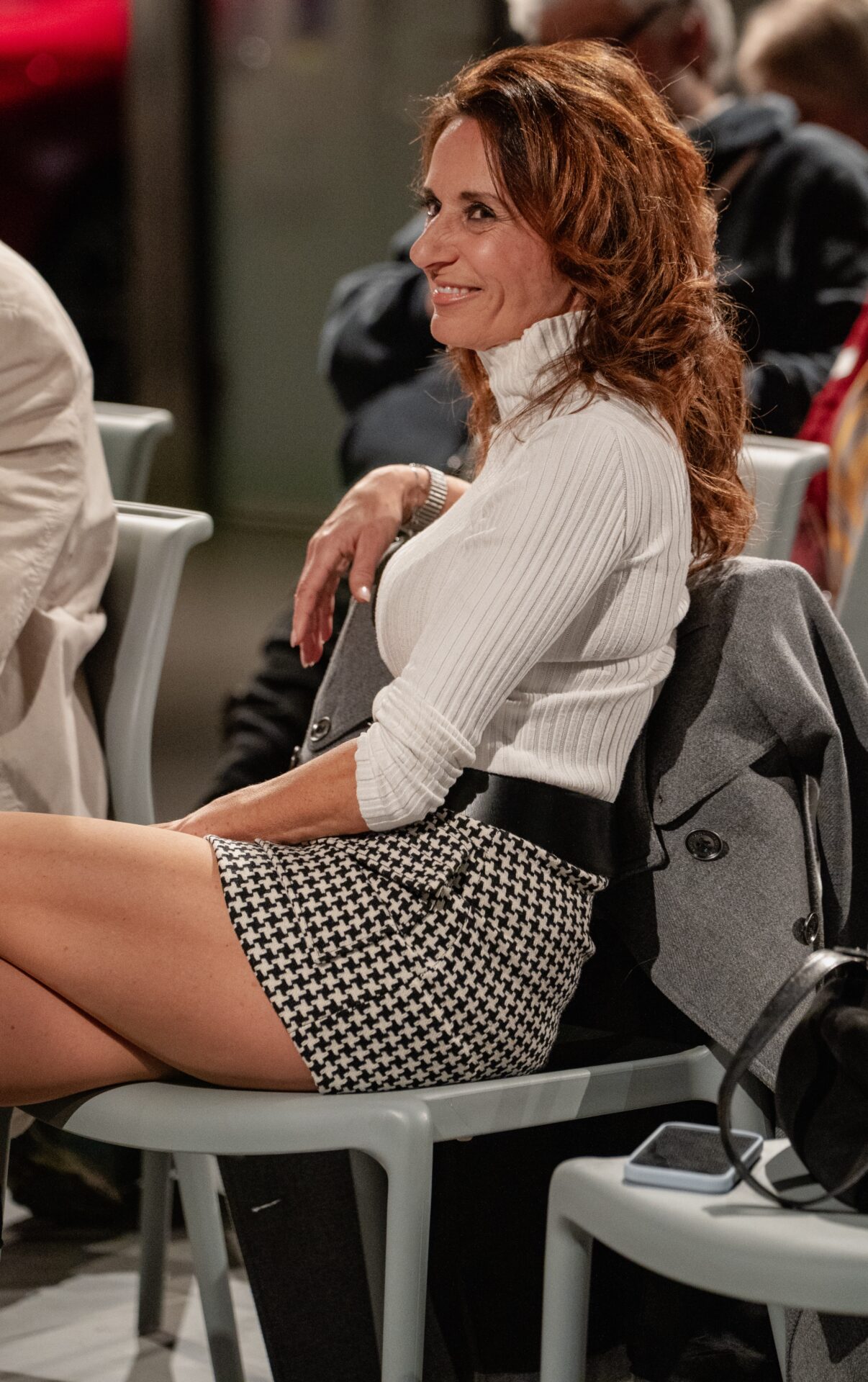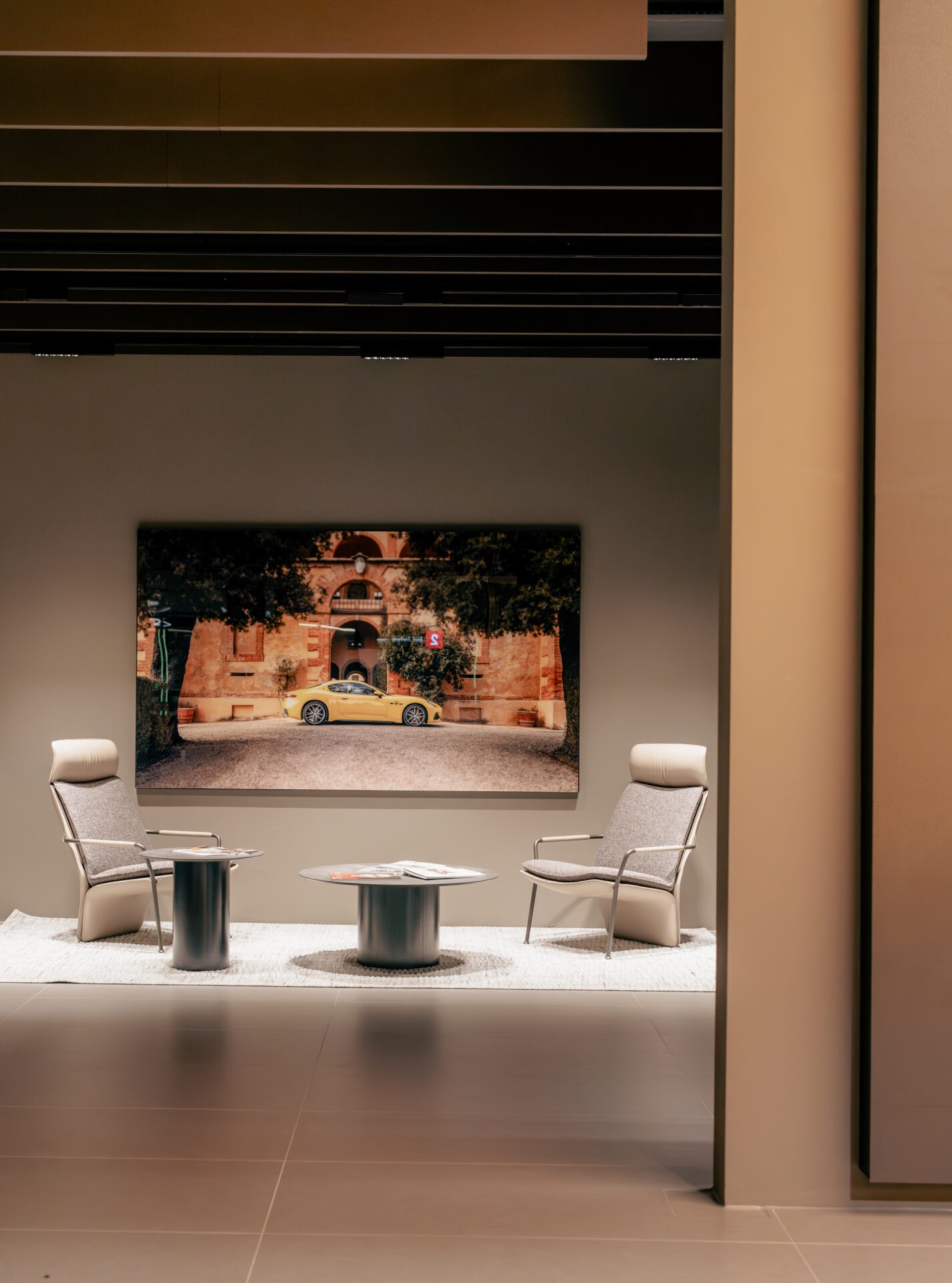Luxury in Transition
Photos: Elena Steness
A Hot Topic
How should one represent and market luxury in such a complex moment of the world? With values changing so deeply, does it make sense to talk about this industry?
The Swiss Travel Communicators Association discussed this delicate topic yesterday in Zurich, at the new Maserati showroom, surrounded by beautiful Italian design.
Three people were talking to an audience of journalists, travel bloggers and marketing experts: Dr. Felicitas Morhart, Professor of Marketing ad Lausanne University, Christian Von Rechenberg, General Manager at Baur au Lac, and Thomas Walther, host of Hotel Walther Pontresina.
We Know the Problem – How About the Solution?
I loved listening to the discussion and found the theoretical approach of Dr. Morhart quite informative. She did a study about the subject and shortly introduced concepts like democratising, second-hand, materialism, virtualisation, mystery vs. transparency, over consume, sustainability, gender fluidity. But I also felt we all know the problem. What’s the solution – how should we behave?
Some of the points that were suggested:
-Full and personal attention to the customer
-Going back to tradition and to what is special in a certain region or of a particular brand
-Choosing top quality and no logos (like Loro Piana, for example)
-Co-creations and collaborations
-Virtual instead of digital
-Going directly to the consumer (not to a distributor)
-Presenting a community instead of a single Ambassador
-Giving experiences instead of just selling
-Storygiving
My Impressions
Even though all indicated points were correct in their own right, I found the discussion still quite sale oriented. The attitude was often: “how can we convince the new customer?” Instead of what I think it should have been: “how can we actually improve the market, since we are the luxury industry and have some budget and potential?”. And also: “how can we treat our partners, customers and employees better, so they feel they have a common purpose?”
Another objection I have is about tradition. In the travel industry I agree: globalisation makes all cities look the same, and rediscovering tradition makes each place special. But in more creative areas like fashion, I think this is bringing very little new ideas. For example, Chanel is forever copying Chanel, Gucci is re-creating Gucci, Hermès always sells its iconic bags, etcetera (while prices sky rocket…for old ideas).
Also, the full and personal attention good hoteliers give to their customers is for sure positive, but it’s always aiming at the ultra rich, and less to middle class that also has a great potential of spending, and doesn’t always do it, in Switzerland, because it feels judged (not rich enough, not socially accepted enough). I do believe that, if anybody from the cleaner to the customer is treated fairly and with genuine interest in their well-being, the final quality is the most luxurious imaginable.
As Dr. Morhart concludes in her study, luxury brands need to be flexible and ready to change, in order not to be knocked off their pedestal. Authenticity, transparency, integrity need to be ready to move to new products, new target audiences or new contexts.
But in my opinion, this should be done with real people sitting at a table and opening their hearts too. The inevitable insecurity and doubts that would come out would also foster creativity, experiments, risk taking, and the shaping, instead of more and more individualism, of a real, loving community.
